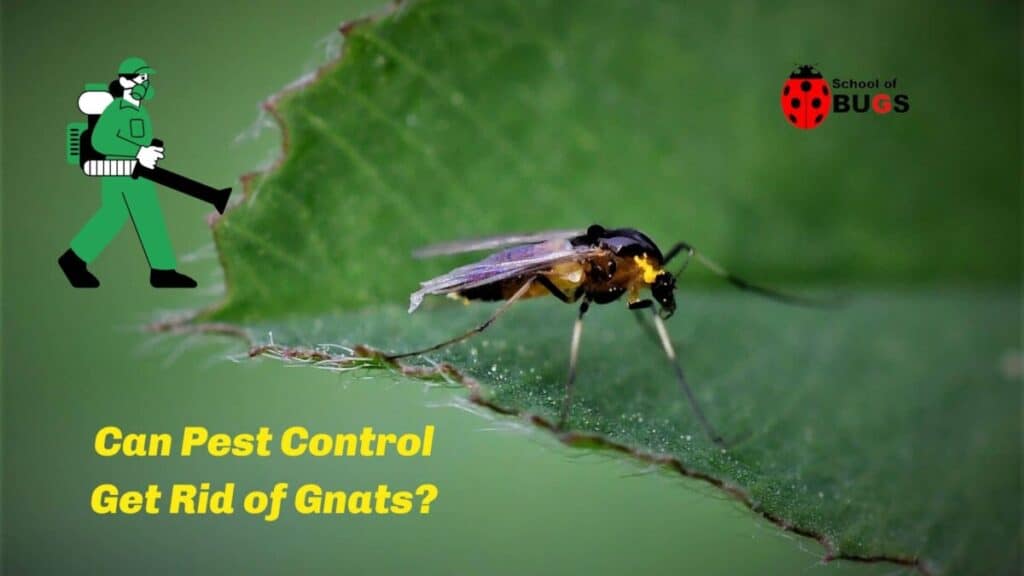
Gnats are one of the worst home invaders that can make your life miserable, and rooting out these little pests can be a nightmare. Here’s everything you need to know about gnat infestations and how pest control can help.
Pest control experts have the knowledge and expertise to identify the source of the infestation, apply treatment, and equip you with preventative measures so that gnats don’t come back.
The rest of this article will dive into the following topics:
- What attracts gnats?
- How do gnats enter the home?
- What damage can gnats cause?
- How to get rid of gnats
- What can pest control do about gnats?
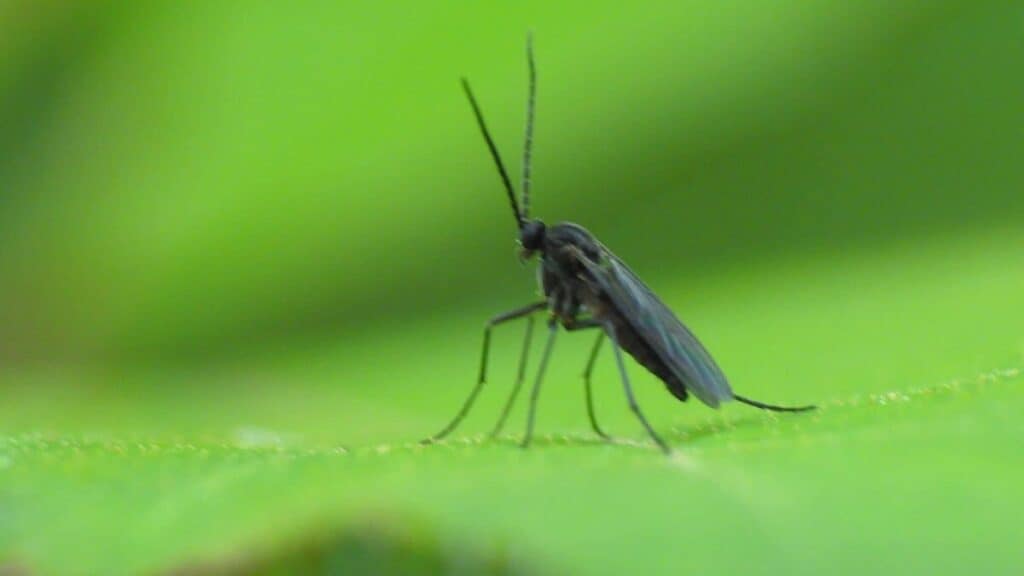
What Brings Gnats into a Home?
Gnats, like many living creatures, are always on the lookout for their survival needs. When gnats enter your home, it’s most likely because they’ve pegged it as an ideal place to procreate or lay their eggs.
Any environment rich in water and decaying organic matter is a gnat paradise and a prime invitation for breeding.
It’s just another reason why the best defense against a gnat invasion are proactive measures like removing rotting fruit and sealing your trash can lid.
Abundance of food is a key marker for gnats to reproduce quickly, so cutting back on their availability can help prevent gnats from taking over your home.
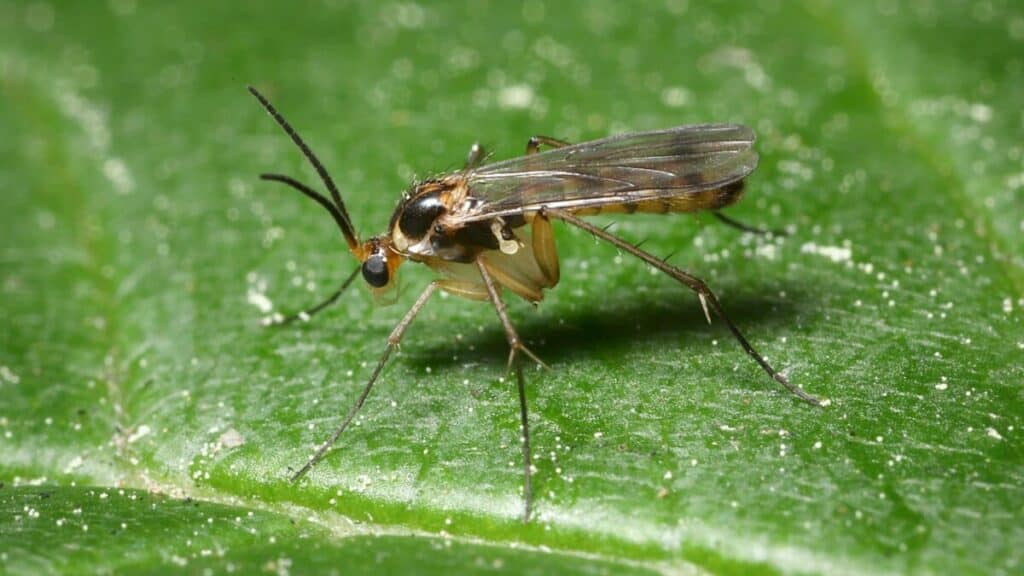
How Do Gnat Infestations Start?
Gnats can enter your home and cause a nuisance through just about any opening. They tend to make homes a residence when seeking warmth, food, and shelter.
The most common entry points are the following:
- Windows – A particularly weak spot, windows can regularly admit gnats if the screen gets damaged or if there are even miniscule holes or gaps in the windows. Make sure that you always close your windows at night, since an open window is an open invitation to gnats.
- Doors – Conduct regular maintenance to ensure that your doors stay firmly shut and don’t have any gaps that can allow entry. Weatherstripping your doors is a good twofold approach, since it not only stops gnats, but also protects the interior of your home from the elements.
- Walls – Damage to your walls and ceilings can be a potential access point for gnats, and proper exterior maintenance is the key to keeping these nibbling menaces out of your home.
- Pipes – Moisture is a big draw for gnats, which is why you need to deal with broken pipes, radiator leaks, and trickling faucets quickly to avoid attracting gnats.
- Vents – Vents are a potential access point for gnats, giving them free rein in your kitchen and bathroom. Investing in vent covers is a good approach to stop gnats from using them to get inside.
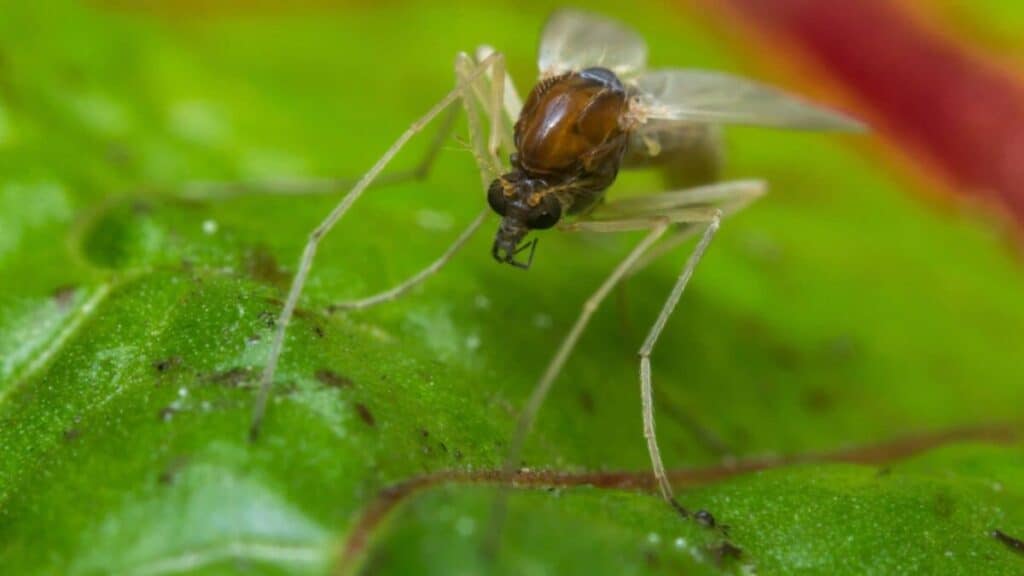
What Damage Can Gnats Cause?
Gnats can be a menace in your home for several reasons, and surprisingly, the two sexes are responsible for different types of damage in the home.
Females in some species of gnats are biters and will feed on blood to sustain their eggs—That includes you and your pets.
It’s not just the uncomfortable irritation and inflammation following a bite that you need to worry about. Gnats can carry harmful diseases and parasites.
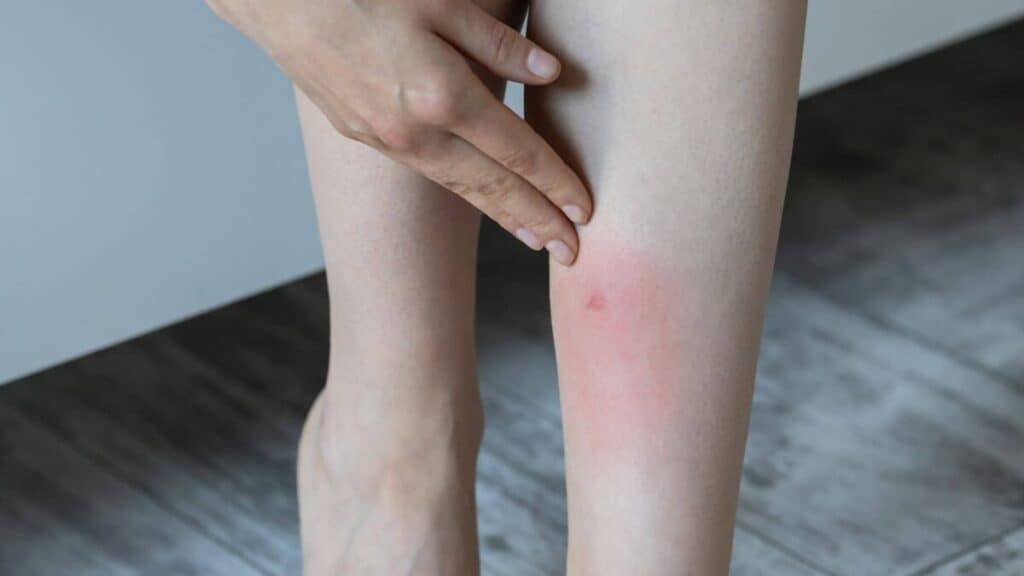
Most species of gnats are harmless, and the chances that you’ll encounter a species of biting gnat carrying a disease in your home are slim; however, it’s still an alarming prospect to consider.
Gnat bites can also cause skin infections and potentially severe reactions in people who are allergic to them.
These negative side effects are the main reasons gnats and humans simply cannot coexist. The males aren’t much better, feeding on the moisture from plants and laying their eggs in the fertile soil.
While gnats generally target dying organic matter, an overabundance of gnats can lead them to damage the roots and cause the plants to die.
Tackling a gnat infestation before the adults lay their eggs in the soil is your best bet for keeping gnats away from your plants.
After all, they’re so miniscule that you might not even notice the harm they’re causing until you see signs of wilting or yellowing on your plants.
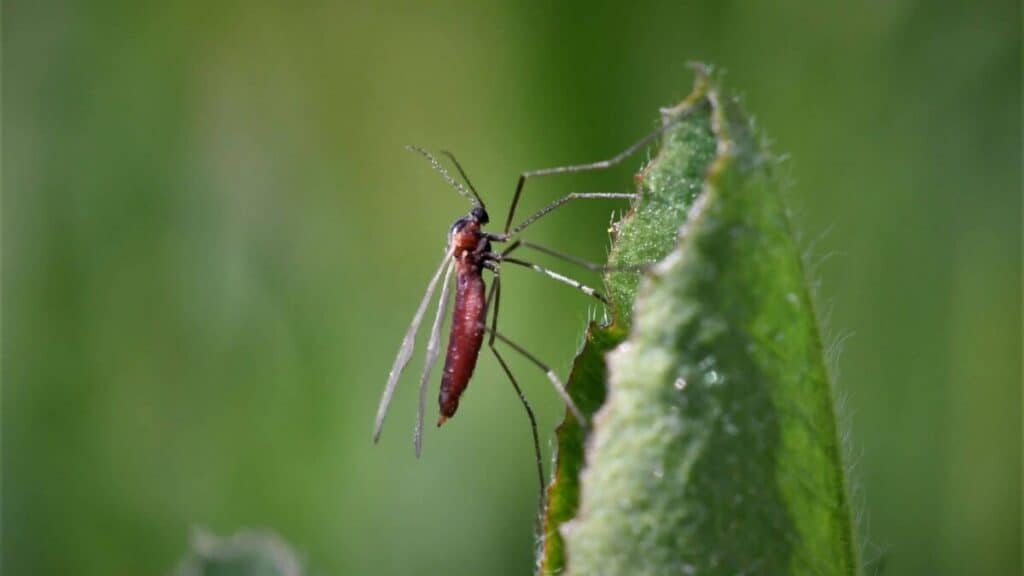
What Can You Do about a Gnat Infestation?
Any pest control company worth their salt will tell you that prevention is always better than treatment. Of course, there comes a point at which a gnat infestation requires professional intervention, but here are some essential steps you can take to discourage gnats from visiting and lessen their numbers.
To stop gnats from harming your plants, use pyrethrins or pyrethroids, always checking the label to make sure it can target gnats and won’t harm your plants.
Not only will this treatment protect your plants, but it will also target and kill adults and larvae on your plants, hopefully halting the infestation for good.
If possible, water your indoor plants less to avoid attracting gnats to the excess moisture in the soil.
Most plant parents tend to overwater just out of an abundance of caution, but not only does overwatering cause damage to the plant in the long run, but it can also attract gnats.
The most important defense you can mount against a gnat infestation is to be extremely prudent about disposing of food. Always clean up after yourself following each meal and address spills or dropped food immediately.
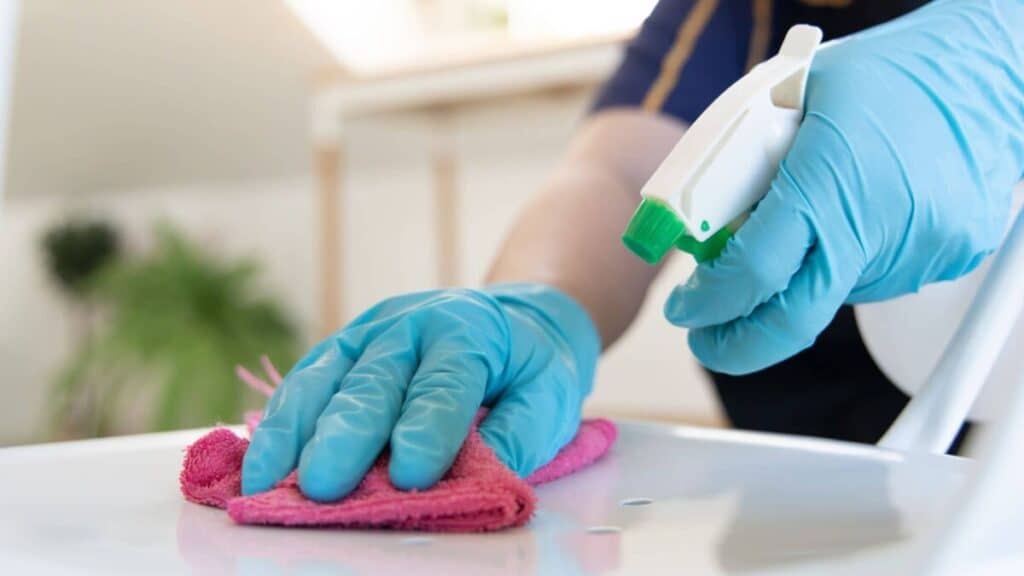
Dispose of your trash in a sealed trash can and take out your trash nightly. A whole host of unwanted guests are attracted to decaying organic matter, so getting into the habit of sealing it off is always a good thing.
Fruits are a major attractant for gnats and other pests, so you should ideally store them in the fridge, not out on the countertop.
Lastly, as mentioned earlier, gnats and other pests are invited into your home by an abundance of moisture. It’s why you’ll often find pests congregating around a leaky faucet or in the humid bathroom.
Address plumbing leaks and stoppages sooner rather than later, and tackle any damp standing water around your home (like rain gutters).
Not only are these ideal for gnats, but they’re also a welcome sign for the only biting insect pest that’s arguable worse: mosquitos.
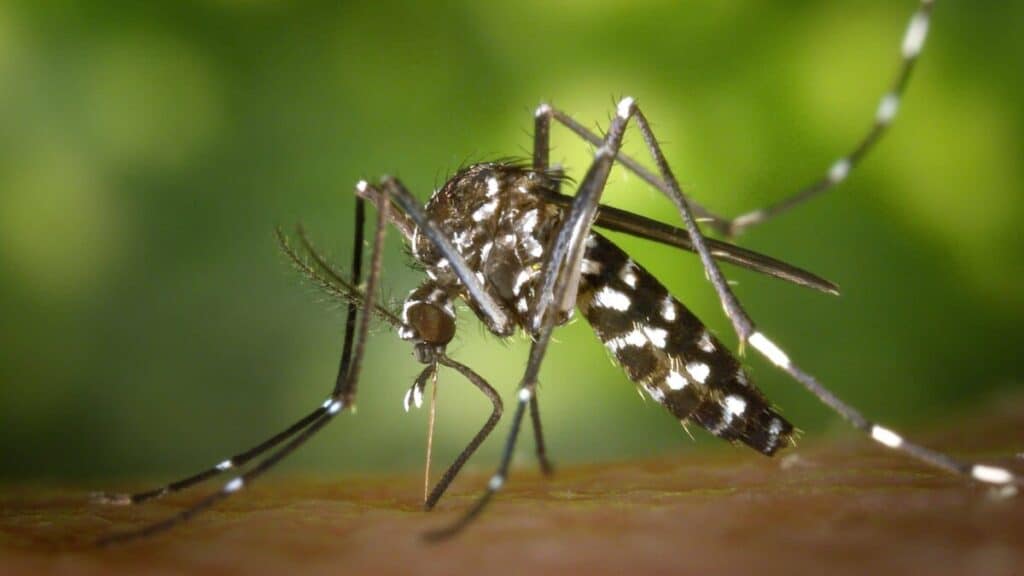
What Can Pest Control Do about Gnats?
While the above methods are excellent for keeping gnats away from your home, there’s only so much you can do once they start to prolifically breed.
An overabundance of gnats isn’t going away with a few DIY traps, although they can certainly help. Infestations are a prime opportunity to enlist the help of your local pest control agency, whose members are equipped with the knowledge, expertise, and resources to handle a gnat infestation.
Experts know where gnats like to hole up and will be able to quickly identify why gnats have taken up residence in your home, addressing the root cause of the issue and not just putting a proverbial band-aid on it.
These experts will often lay out traps in strategic locations to kill gnats en masse as they go throughout your home.
In addition, pest control may actively spray gnats out of the air with an insecticide solution, depending on the extent of the problem.
Lastly, a pest control company will identify where gnats are breeding and exterminate the larvae so that the gnats are entirely eradicated from your home.
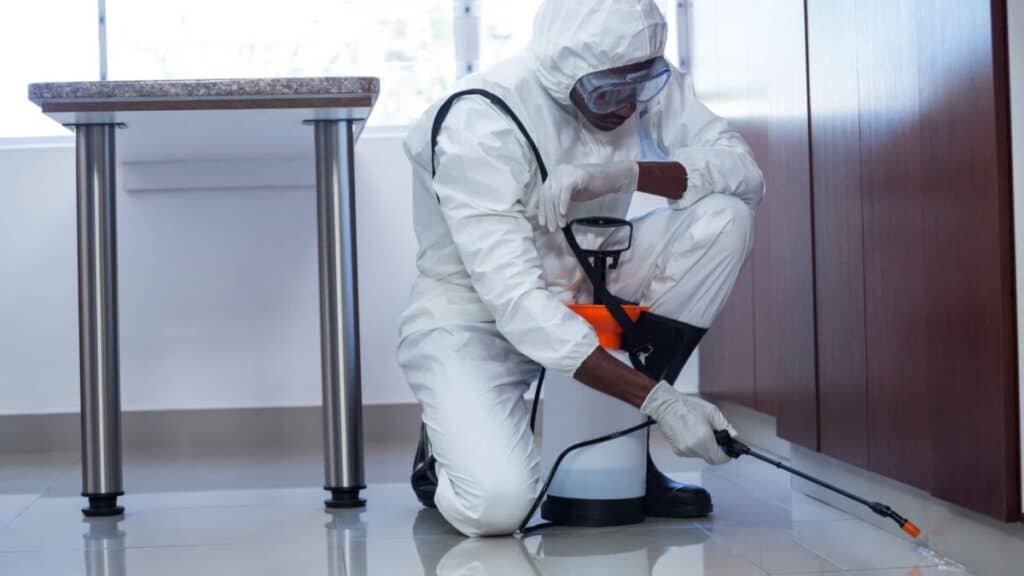
This treatment may require several follow-ups, depending on the extent of the infestation, and pest control experts may require a couple of days or a couple of weeks to ensure that the gnats have been completely excised from your home.
Perhaps the most important step pest control experts take is to educate you on what caused the issue and how you can prevent future infestations.
They’ll go through your home with you to identify potential access points, steps you can take to avoid encouraging gnats, and how to follow up with the company if you spot more gnats in your home after treatment.
Some pest control companies will even take that additional step of caulking, sealing, and gnat-proofing your doors, windows, walls, and vents to prevent another infestation.
These steps are well worth taking, whether you live in a home or a rental space since whatever factors attract gnats will also attract a whole host of other insects you don’t want to share a living space with.
Enlisting the help of a pest control company can save you time and a massive headache trying to DIY your way in an uphill battle against an infestation of gnats that have already taken root in your home.
If the problem is severe, then contact a trusted pest control agency for the best identification, extermination, and prevention of gnats.
Final Thoughts
Tackling a gnat infestation isn’t usually something you can manage on your own, although there are certainly a number of helpful steps you can take to discourage gnats from making your home theirs.
Contacting a pest control agency ensures you get professional, quick, and efficient pest control services to get rid of gnats for good.
Alright, that’s it for this article, here are a few hand-selected articles that you might also find interesting reads:
What Are Gnats Attracted To? Light | Bug Zappers | MoldWhere Do Gnats Lay Eggs? 5 Key Places To Check
I’ve Seen One Gnat Should I Be Worried?
Recent Posts
Tiny Black Bugs in Bathroom NO WINGS: What They Are and What to Do!
Finding tiny black bugs in your bathroom can be uncomfortable, to say the least. Especially if they are persistent, or they appear in very large numbers, which they often like to do. When it...
Tiny Black Bugs in Plant Soil - What Are They & What To Do About It
A short horror story: You get a new houseplant. You do your best to take care of it. You’ve ensured that it has the right soil, the right amount of sun, it gets enough water. And then one day, you...

